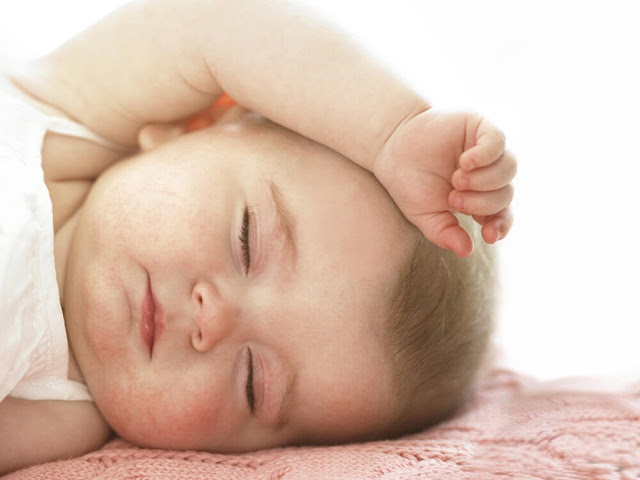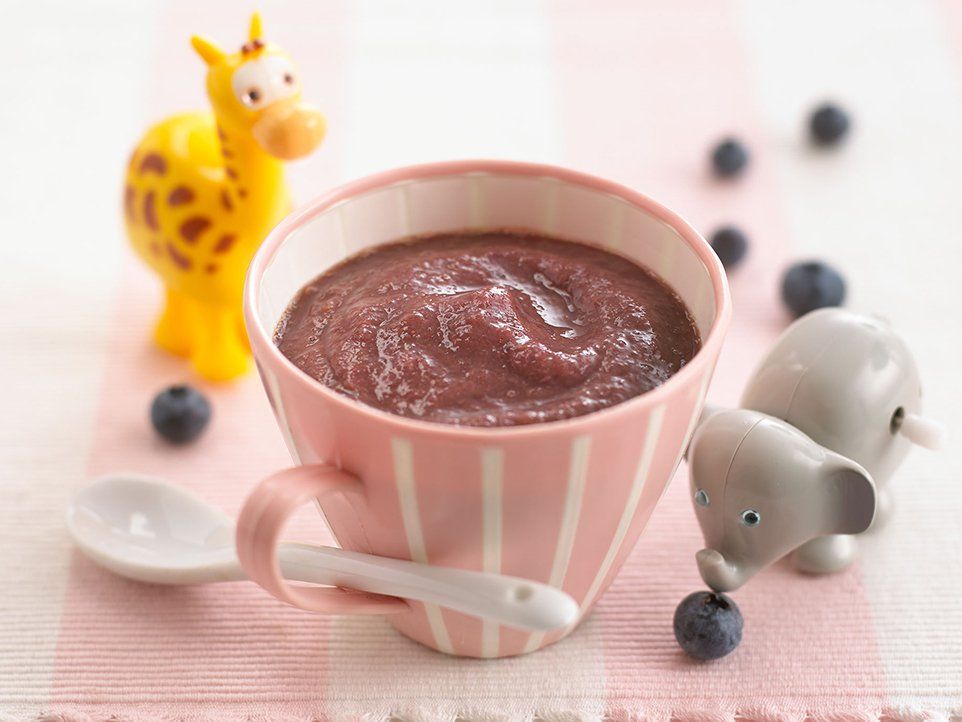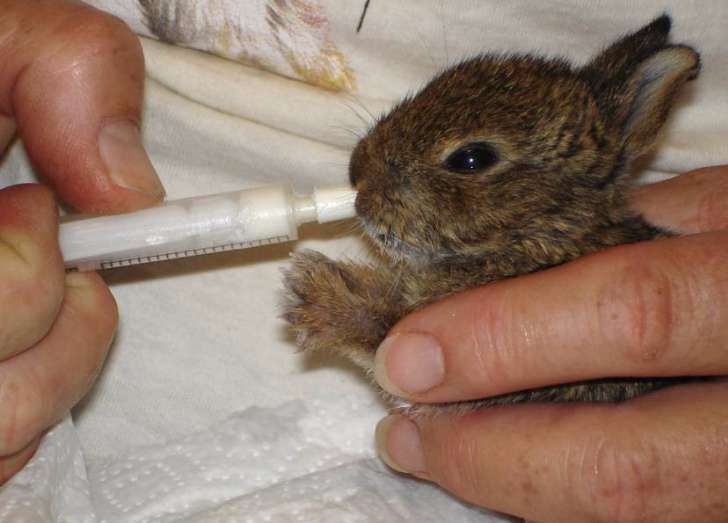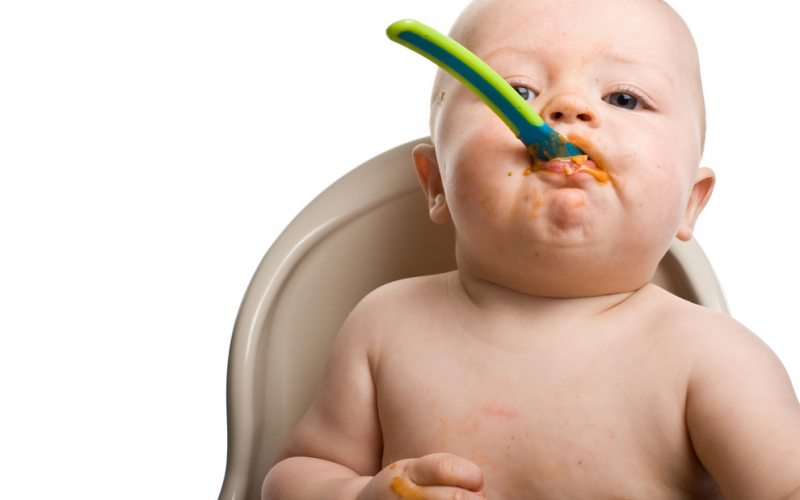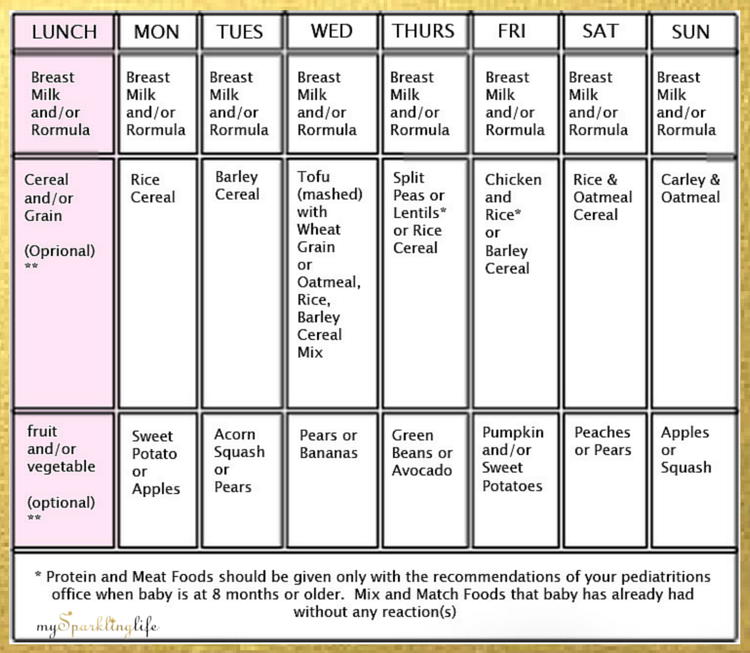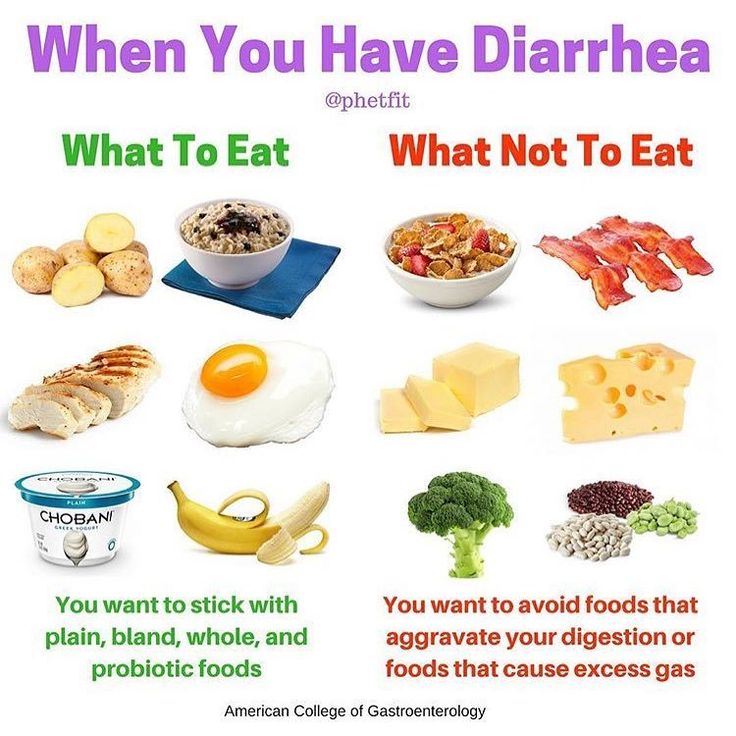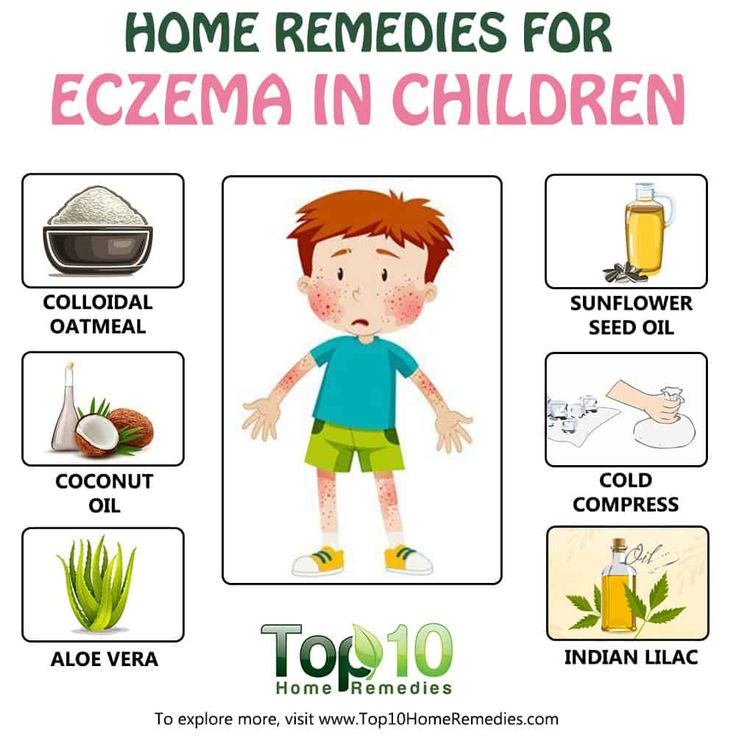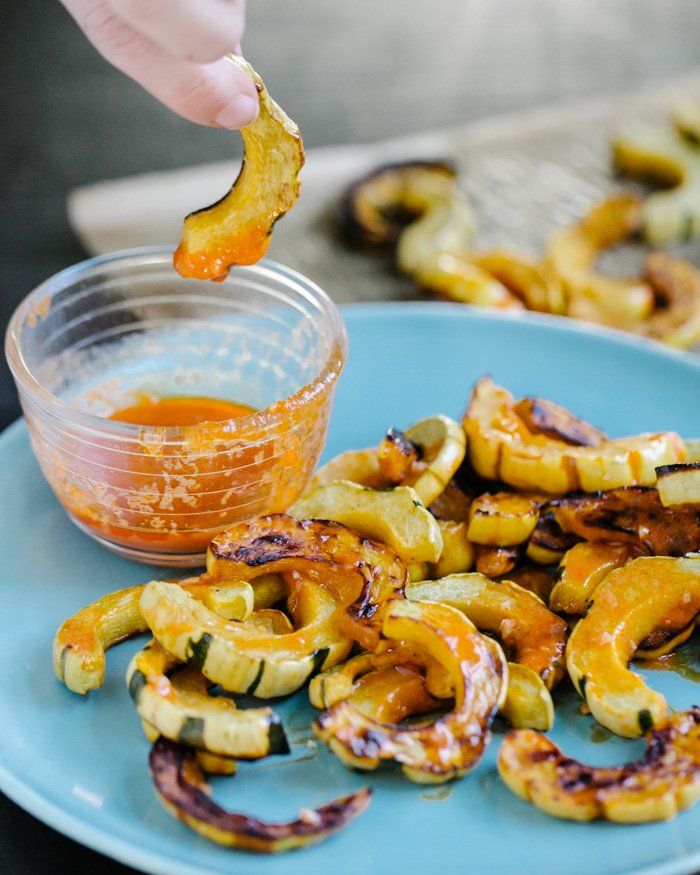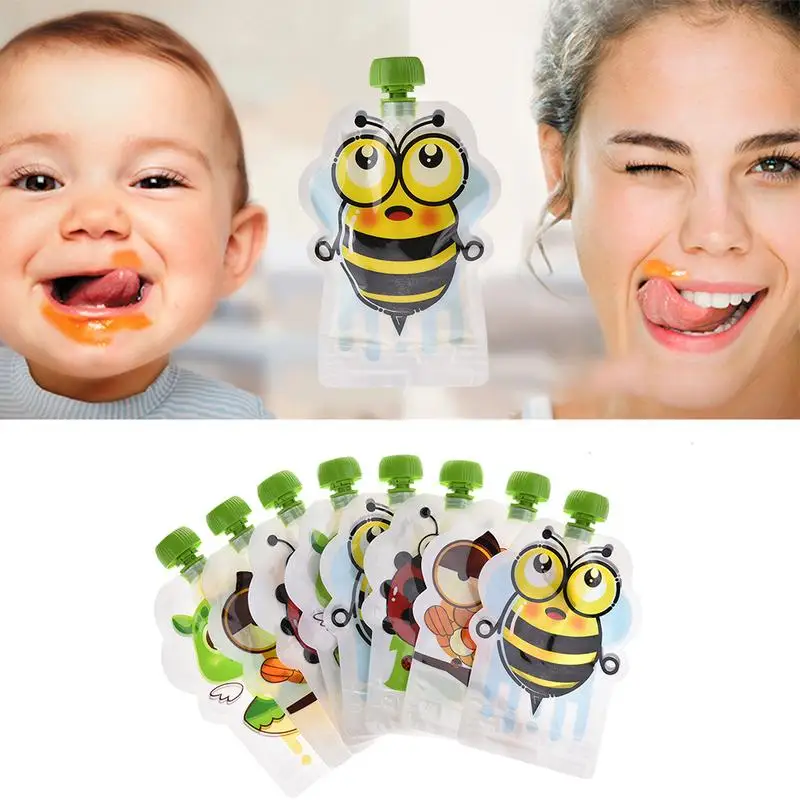Sweating in babies during feeding
Why Does Your Baby Sweat While Breastfeeding?
Do you ever wonder why your baby breaks a sweat while breastfeeding? Have you come across it more than once? Do you wonder if it is an indication of some health issue? All these questions occur in your mind and make you curious especially if you are a new-mum. It can be very unsettling for you. You might have dismissed thinking that it is because of the warm weather. Your clueless thoughts will end after reading this blog. There are many reasons as to why your baby sweats while breastfeeding.
Check out: Common breastfeeding myths busted and the basics every new mom should know
Reasons your baby sweats while breastfeedingIt is common for babies to sweat while breastfeeding. But it is important to mention it to your pediatrician when you take her for a health check-up. The following are the reasons for your baby to sweat.
Mummy’s skinWhile breastfeeding, you and your baby are in close contact, often skin-to-skin and it can make your baby feel warm. It increases your baby’s body heat. To help your baby regulate her temperature, the body stimulates the natural process of cooling by starting to sweat. It is a classic biology stunt.
A warm environment obviously causes your baby to sweat. If you live in a hot and humid place, your baby is more likely to sweat while breastfeeding. That is why; make sure her room is of ambient temperature. She will get fussy while breastfeeding if it is too cold or too hot. It is always a good idea to keep the rooms well-ventilated. It will keep your baby comfortable and will also prevent any stuffiness in the room.
Too many clothesYou should never over-dress your baby. The old norm of layering her up with many clothes is not always applicable. Put on clothes as necessary. Too many layers of clothes in a hot surrounding will cause sweating. Avoid making her wear a cap while she is feeding, as keeping her head bare will help her body to remain cool.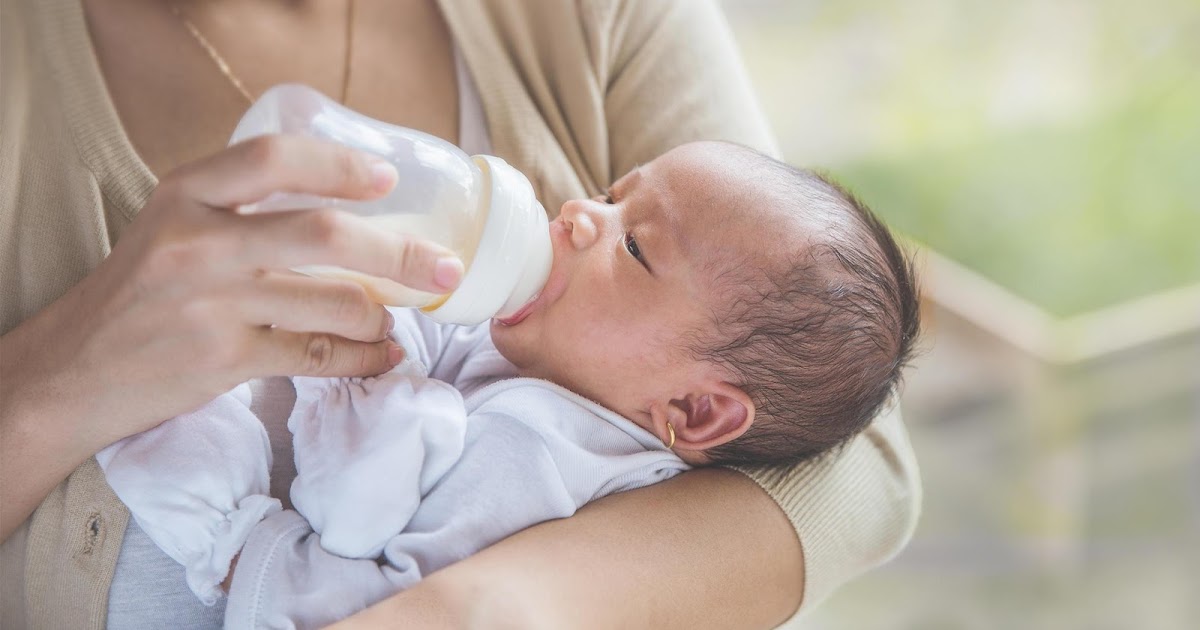 If it is cold and you are feeding her during winter months, you can dress up your little one in woolen clothes.
If it is cold and you are feeding her during winter months, you can dress up your little one in woolen clothes.
Cotton clothes are breathable and soft. It will make sure that your baby is comfortable. If you use polyester clothes, there will not be any air circulation. This is another reason why your baby will sweat. During breastfeeding, your baby is close to your skin making it warmer for her. Polyester clothes will only increase her sweating.
Sucking is your baby’s form of exerciseWhen we exercise and move our muscles, it is common for us to sweat. In the same way, sucking is an exercise to your baby’s jaws. This is a form of exercise for her which makes her sweat. You can let your baby take breaks before you complete breastfeeding.
Check out tips ensuring proper breastfeeding sessions with your baby
Why does your baby sweat while breastfeeding: Does it indicate a health issue?While sweating when breastfeeding is normal, there might be some health issues associated with it.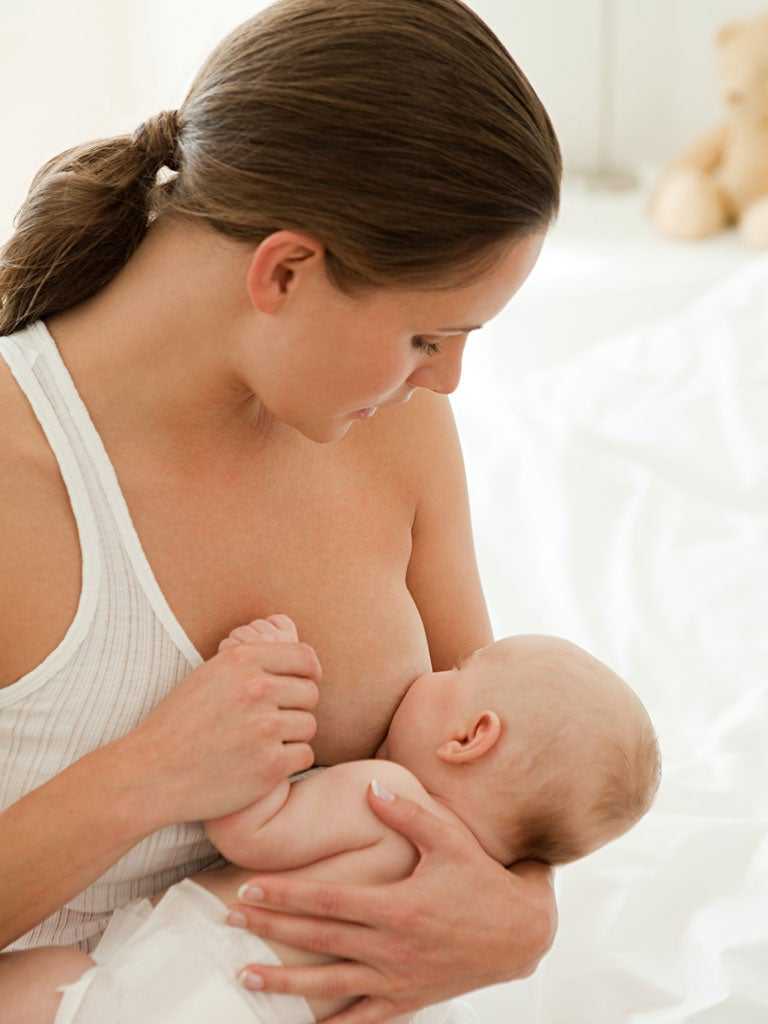 The most common health issues are pulmonary atresia and hyperthyroidism.
The most common health issues are pulmonary atresia and hyperthyroidism.
Pulmonary atresia is a condition related to the pulmonary valve of the baby’s body. The pulmonary valve is an opening on the right side of the heart that helps regulate blood flow to the lungs. In the case of pulmonary atresia, the pulmonary valve does not form properly. As a result, the blood from the baby’s right ventricle cannot reach the lungs. It leads to a deficiency of oxygen in the body.
Excessive sweating may also indicate a condition related to the thyroid gland. This condition is called hyperthyroidism. Some babies can suffer from cyanosis or develop a bluish tint to their skin.
If your baby has a health issue that causes excessive sweating while breastfeeding, there will be more symptoms that you need to spot. Here are a few more symptoms you can watch out for:
• Your baby may have difficulty in breathing. She may breathe rapidly or slowly or even gasp.
• Additionally, your baby may always seem tired and lethargic or may fall asleep while feeding all the time.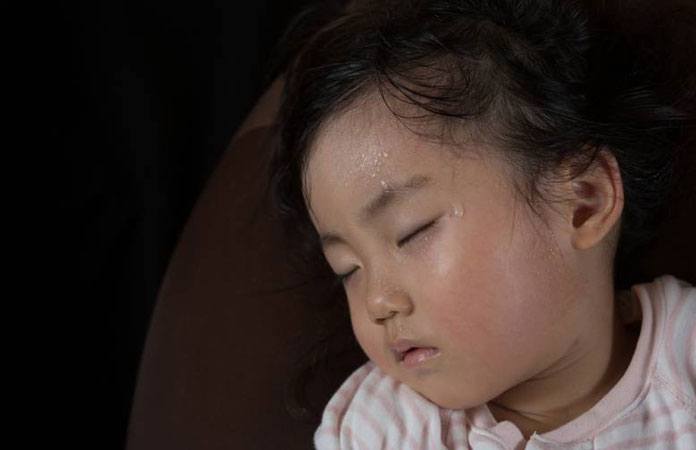
• In some cases, your baby may not want to feed at all.
Read now: Some breastfeeding tips you should remember
Why does your baby sweat while breastfeeding: More tips to reduce baby sweatingBefore you get panicked and fill your mind with all sorts of negative thoughts, there are a few tips to decrease your baby’s sweating. Try out these tips before you rush to a doctor.
• While you are breastfeeding, you and your baby will be in a tight embrace. Therefore, it is important that you take care of your clothing as well, as what you wear will also affect your baby. Make sure you dress in light cotton clothes in summer that will help keep both you and your baby cool. Make sure the material is soft on your baby’s skin. If you are feeding during winter months, check that your woollen garment does not touch your baby’s body directly, as it can cause skin irritation.
• Do not cover your baby’s head or face using a cloak while you are nursing her at home.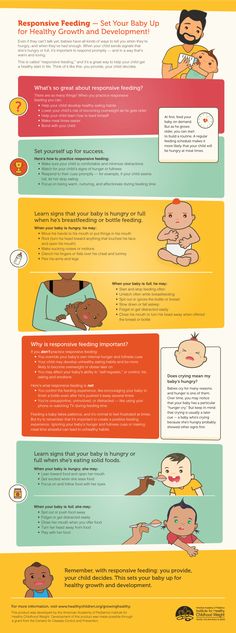 Use a cotton nursing cloak while breastfeeding her in public.
Use a cotton nursing cloak while breastfeeding her in public.
• If your baby does seem uncomfortable, lightly blow air over her head to reduce any sweating.
• Try switching your baby’s position while breastfeeding her. Often, while you are nursing your little one, her head lies cradled in the same position for long. It causes one part of her face and head to heat up, leading to profuse sweating in that area. Make sure you change your baby’s position for some time while switching breasts.
If your baby is still sweating after taking all these necessary measures, you should consult the doctor immediately. Excessive sweating can be a symptom for some major health issue. Now that you know almost all possible reasons for why your baby is sweating while breastfeeding, there is nothing to panic about.
Check out the Parentlane app, to get more information on breastfeeding your baby
31
39
Shares
How To Reduce Baby Sweating While Breastfeeding?
Infants sweat while nursing for several benign reasons like warm room temperature.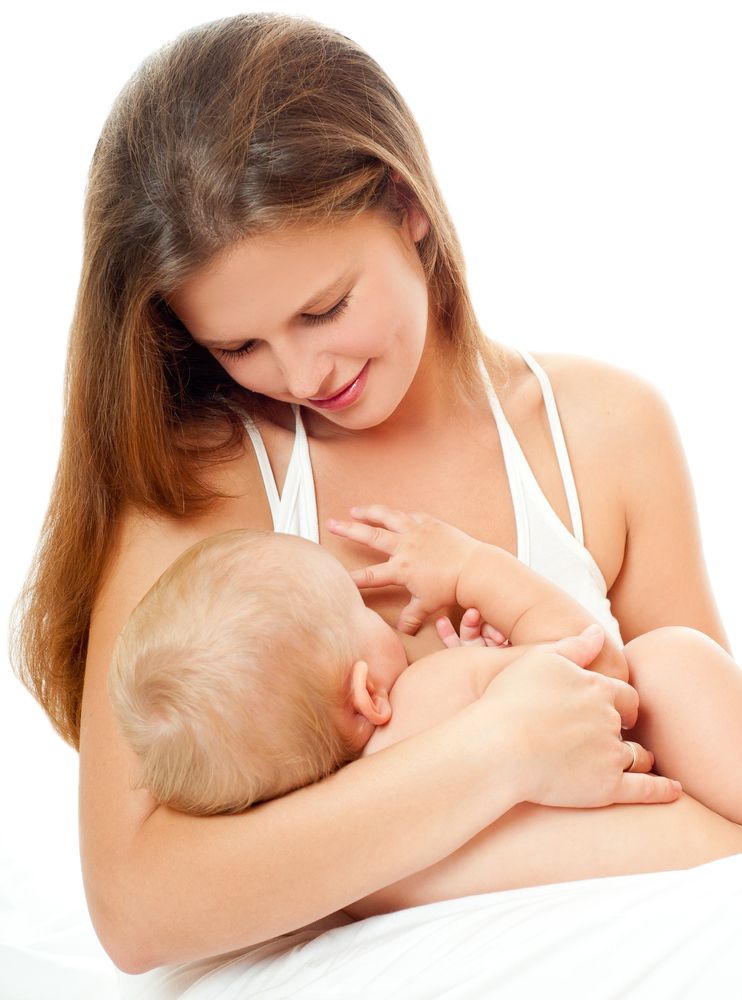
Research-backed
MomJunction believes in providing reliable, research-backed information to you. As per our strong editorial policy requirements, we base our health articles on references (citations) taken from authority sites, international journals, and research studies. However, if you find any incongruencies, feel free to write to us.
Image: iStock
Breastfeeding is like a workout for babies, and just like adults sweat when they exercise, babies sweat while breastfeeding. Sweating or perspiration is the body’s way of keeping itself cool by sending excess heat out of the body. Sweating may happen anywhere on the body, but it is most common on the head, scalp, under the arms, on palms, and the soles of feet (1). Read this post as we explain the causes, management, and signs you need to see a doctor if you notice your baby sweating more than usual when they breastfeed.
Do Babies Sweat When Feeding?
Some babies do sweat while breastfeeding.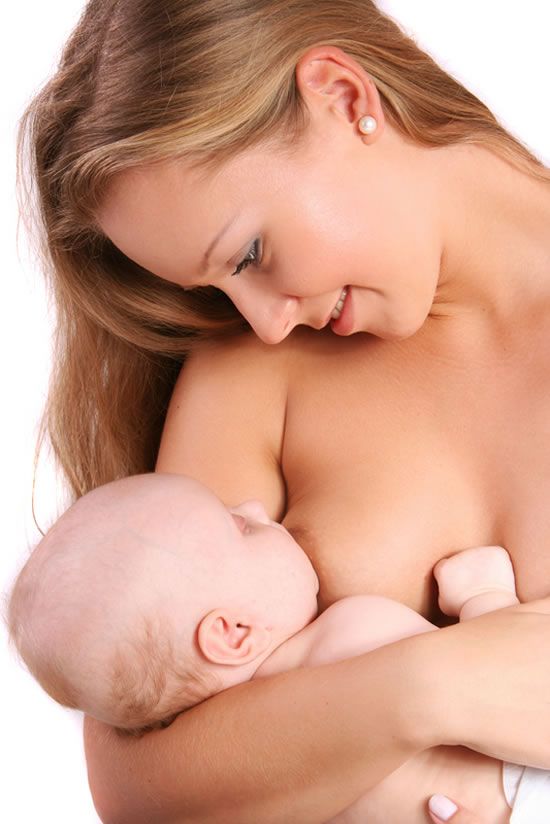 If the baby’s body temperature rises due to some reason, then the sweat glands release sweat. Certain health conditions might also cause sweating while breastfeeding.
If the baby’s body temperature rises due to some reason, then the sweat glands release sweat. Certain health conditions might also cause sweating while breastfeeding.
Not all babies sweat while breastfeeding. Read on to know more about the likely causes.
Why Do Babies Sweat While Breastfeeding?
If your baby is sweating during feeding, then it does not mean that there is always a pathological reason for that. A baby might sweat for the following general physiological reasons:
1. Skin-to-skin contact
Image: iStock
While feeding, the baby comes in skin-to-skin contact with the mother. The heat from the mother’s body gets transmitted to the baby’s skin, thus increasing the likelihood of sweating.
2. Room temperature
High room temperature can make a baby uncomfortable and overheated. It can also lead to sweating.
Related: What Is The Right And Ideal Room Temperature For A Baby?
3. Excess covering
Parents may cover the baby in blankets to keep them warm.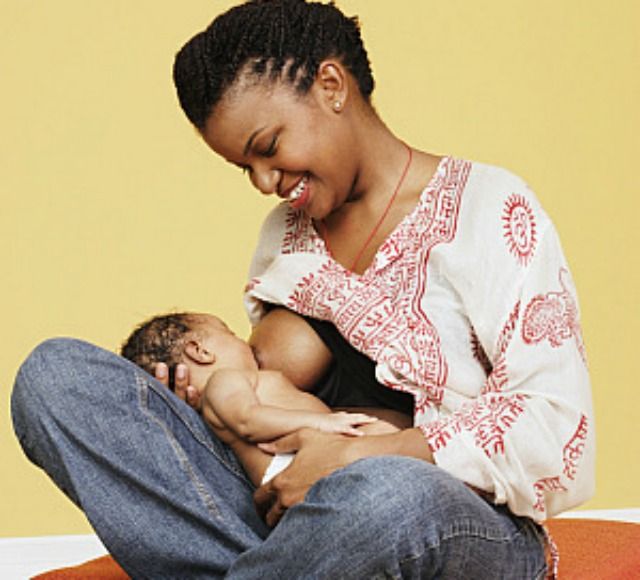 At times, the mother might cover herself and the baby while breastfeeding in public. Placing a cover over the baby’s stroller or car seat makes it warmer for the baby, even if the cover is thin and breathable. This can overheat the baby and may cause sweating.
At times, the mother might cover herself and the baby while breastfeeding in public. Placing a cover over the baby’s stroller or car seat makes it warmer for the baby, even if the cover is thin and breathable. This can overheat the baby and may cause sweating.
4. Warm clothes
Image: Shutterstock
Covering the baby in warm clothes can increase body temperature and cause sweating. Making the baby wear a cap during the feeding session might cause sweating on the head.
Related: How To Dress Babies For Sleep (At Different Temperatures)?
5. Remaining in the same position
If the baby is held in the same position for a long time, then it may cause overheating and sweating on the part of the baby’s body that is in contact with your skin.
Why Does The Baby’s Head Sweat While Breastfeeding?
In babies, sweat glands are concentrated on the forehead and scalp, thus leading them to sweat more in these regions. The sweat glands gradually develop on the chest, limbs, followed by other parts of the body (2).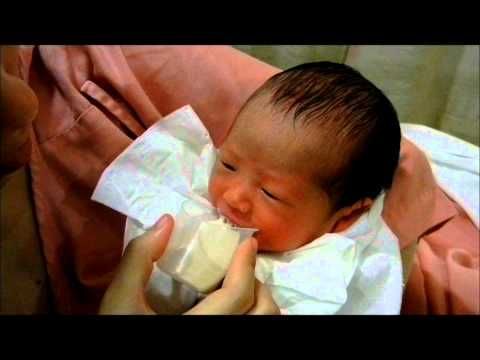
When To Consult A Doctor?
See the doctor in the following scenarios.
- The baby gets tired too soon and does not eat enough or the baby falls asleep right after starting the feed. Consult a lactation consultant IBCLC to assess a feeding and discuss ways to stimulate the baby to actively suckle at the breast.
- They do not gain enough weight. Reach out to a lactation consultant to assess how breastfeeding is going and identify the cause for slow and/or no weight gain.
Image: Shutterstock
- The baby experiences shortness of breath or labored breathing, or gasps for air while breathing.
- There is a blue tint on the baby’s skin, probably indicating that they have less oxygen in the circulating blood.
Related: 10 Causes Why A Baby Gasps For Air And How To Help Them
How To Reduce Sweating While Breastfeeding?
The following tips might help reduce sweating in a baby during breastfeeding.
- Dress the baby in loose and comfortable clothes.
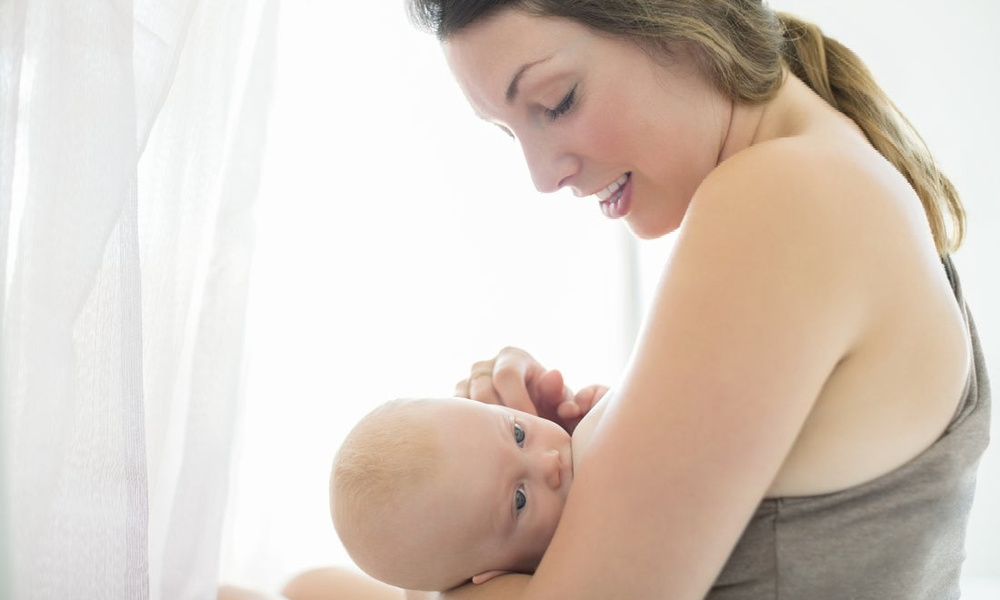 The baby’s clothes should be compatible and suitable for the weather or ambient temperature.
The baby’s clothes should be compatible and suitable for the weather or ambient temperature.
- Choose breathable cotton fabric clothes for your baby. Do not dress them in fabrics like polyester.
- Avoid wearing woolen or polyester clothes yourself while feeding the baby.
- Do not put layers of blankets over the baby while breastfeeding. Instead, use a soft and breathable nursing cover.
Image: iStock
- Do not cover the baby’s head while you are breastfeeding them. Putting caps and mittens on the baby might cause excessive sweating.
- Feed the baby in a well-ventilated room. Keep the temperature of the room comfortable (3).
If none of the tips help in the reduction or management of sweating in babies, then see a pediatrician or a certified lactation consultant.
Does Sweating While Nursing Indicate A Health Issue?
Baby sweating while breastfeeding is not always a cause of concern, but in some cases, excess sweating might indicate an underlying condition.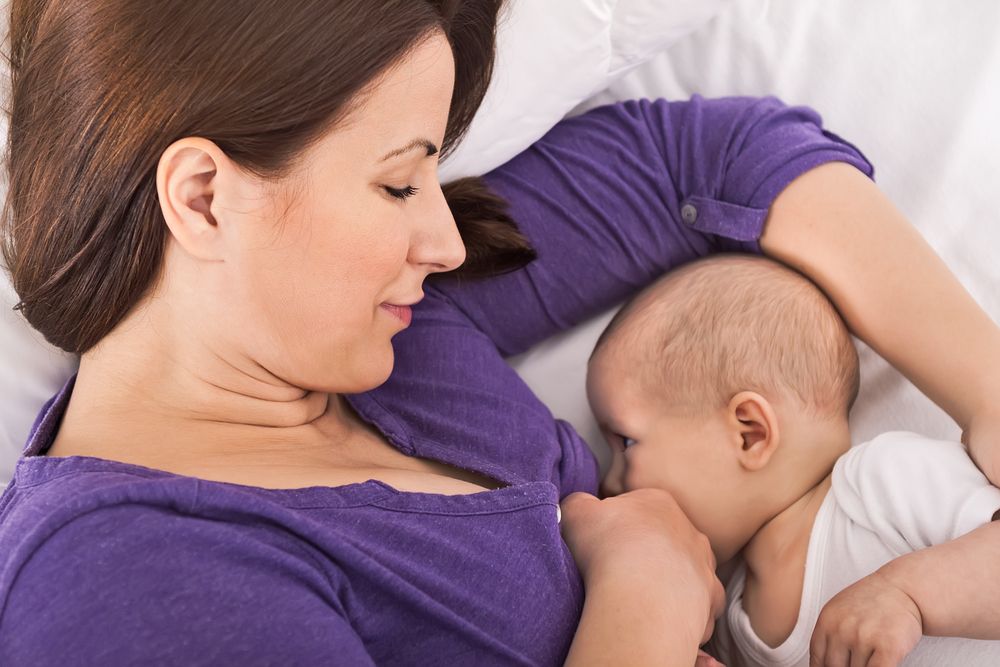 The following are the possible health conditions that might make your baby sweat while feeding.
The following are the possible health conditions that might make your baby sweat while feeding.
1. Hyperhidrosis
Hyperhidrosis is characterized by excessive sweating in amounts greater than what is needed to regulate body temperature (4). The exact cause for hyperhidrosis is not known.
2. Thyroid issue
Hyperthyroidism occurs when the thyroid gland makes too much thyroid hormone (thyroxine). Excessive thyroid hormone increases metabolism and may cause excessive sweating, along with other symptoms such as weight loss, rapid heartbeat, etc. (5)
Related: Hypothyroidism In Babies: Causes, Diagnosis And Treatment
3. Congenital heart disease
Image: iStock
Congenital heart diseases occur when a baby’s heart does not form properly during the fetal stage. It may cause a variety of conditions and disorders that affect heart function. Babies with congenital heart diseases display symptoms such as fatigue, chronic crying, rapid breathing, and excessive sweating (6).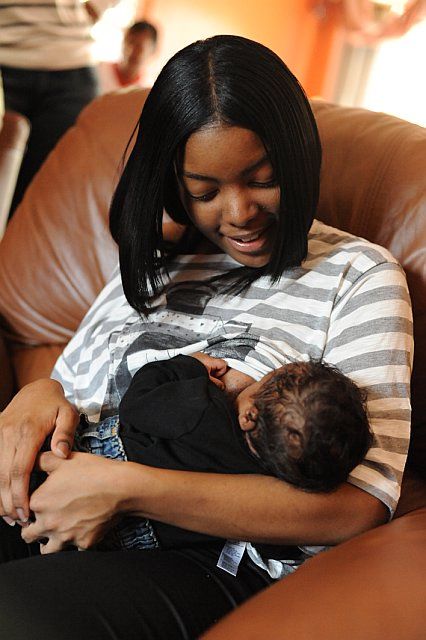
1. When do babies start sweating?
Most babies born after 36 weeks of gestation start sweating from the first day of birth itself (7).
2. How do you tell if a newborn is overheated?
The following tips can help you understand whether or not your baby is overheated (8):
- Feeling the back of their neck and checking whether or not it is sweaty
- Using a thermometer to check their temperature accurately
- The baby is being fussy
Babies sweat while breastfeeding for various reasons, including increased body temperature due to skin-to-skin contact, warm clothes, excessive covering, warm climate, or remaining in the same position for a longer time. These conditions can be managed by changing room temperature or clothing. It is recommended to seek medical care if your baby has sweating and breathing troubles, turns blue, is not gaining weight, or becomes tired from feeding. These symptoms can indicate hyperhidrosis, thyroid issues, and cardiac issues in babies, and sweating may disappear after managing the underlying causes.
References:
MomJunction's articles are written after analyzing the research works of expert authors and institutions. Our references consist of resources established by authorities in their respective fields. You can learn more about the authenticity of the information we present in our editorial policy.
1. Sweating, US National Library of Medicine
2. K. G. Foster, E. N. Hey And G. Katz, The Response Of The Sweat Glands Of The New-Born Baby To Thermal Stimuli And To Intradermal Acetylcholine; The Journal of Physiology
3. The safest room temperature for babies; The Lullaby Trust
4. Hyperhidrosis; The Children’s Hospital of Philadelphia
5. Hyperthyroidism; Boston Children’s Hospital
6. Diagnosing Congenital Heart Defects in Children; Hassenfeld Children’s Hospital
7. Sweating in preterm babies; The Journal Of Pediatrics; ScienceDirect
8. Is My Baby Too Hot or Too Cold?; Mount Sinai Parenting Center
The following two tabs change content below.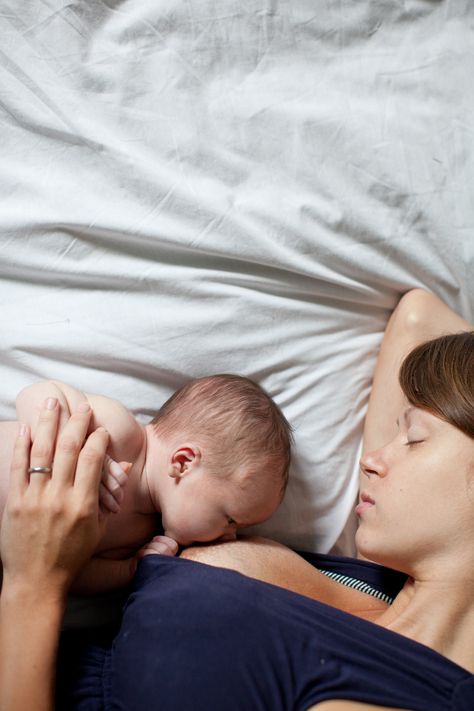
- Reviewer
- Author
Dr. Ritika Shah is a certified lactation counsellor (CLC) from iNational Health Care Academy, Singapore and a dental surgeon with more than seven years of clinical experience across various cities in India. She did her graduation in Dentistry from KM Shah Dental College. During her clinical practice, pediatric dentistry was her particular area of interest, and she constantly thrived to...
View Profile ›
Yinés Garcia-Taylor is an international board-certified lactation consultant (IBCLC), registered nurse (RN), mother, and founder of Prenatal Yini; a private in-home and virtual lactation consulting service. She supports breastfeeding families in both inpatient and outpatient settings. Through private virtual lactation consultations, she empowers breastfeeding families worldwide. Yines has earned a bachelor’s degree in International Business from St. Peter’s University and...
View Profile ›
Turmeric During Breastfeeding: Safety And Health Benefits
Turmeric During Breastfeeding: Safety And Health Benefits
Nausea When Breastfeeding: Causes, Treatment and Home Remedies
Nausea When Breastfeeding: Causes, Treatment and Home Remedies
Is It Safe To Take Allegra When Breastfeeding? Uses & Risks
Is It Safe To Take Allegra When Breastfeeding? Uses & Risks
Probiotics For Breastfeeding: Safety, Benefits And Side Effects
Probiotics For Breastfeeding: Safety, Benefits And Side Effects
31 Best Lactogenic Foods That Increase Breast Milk Supply
31 Best Lactogenic Foods That Increase Breast Milk Supply
Chamomile Tea When Breastfeeding: Safety, Benefits And Precautions
Chamomile Tea When Breastfeeding: Safety, Benefits And Precautions
How To Express Breast Milk By Hand? Advantages & Precautions
How To Express Breast Milk By Hand? Advantages & Precautions
Botox When Breastfeeding: Safety, Effects & Alternatives
Botox When Breastfeeding: Safety, Effects & Alternatives
How Safe Is Ginseng During Breastfeeding
How Safe Is Ginseng During Breastfeeding
Why does the baby sweat while feeding?
Bulavina Ekaterina Borisovna
pediatrician of the 1st category
The baby sweats during feeding, so much so that you have to change the vest.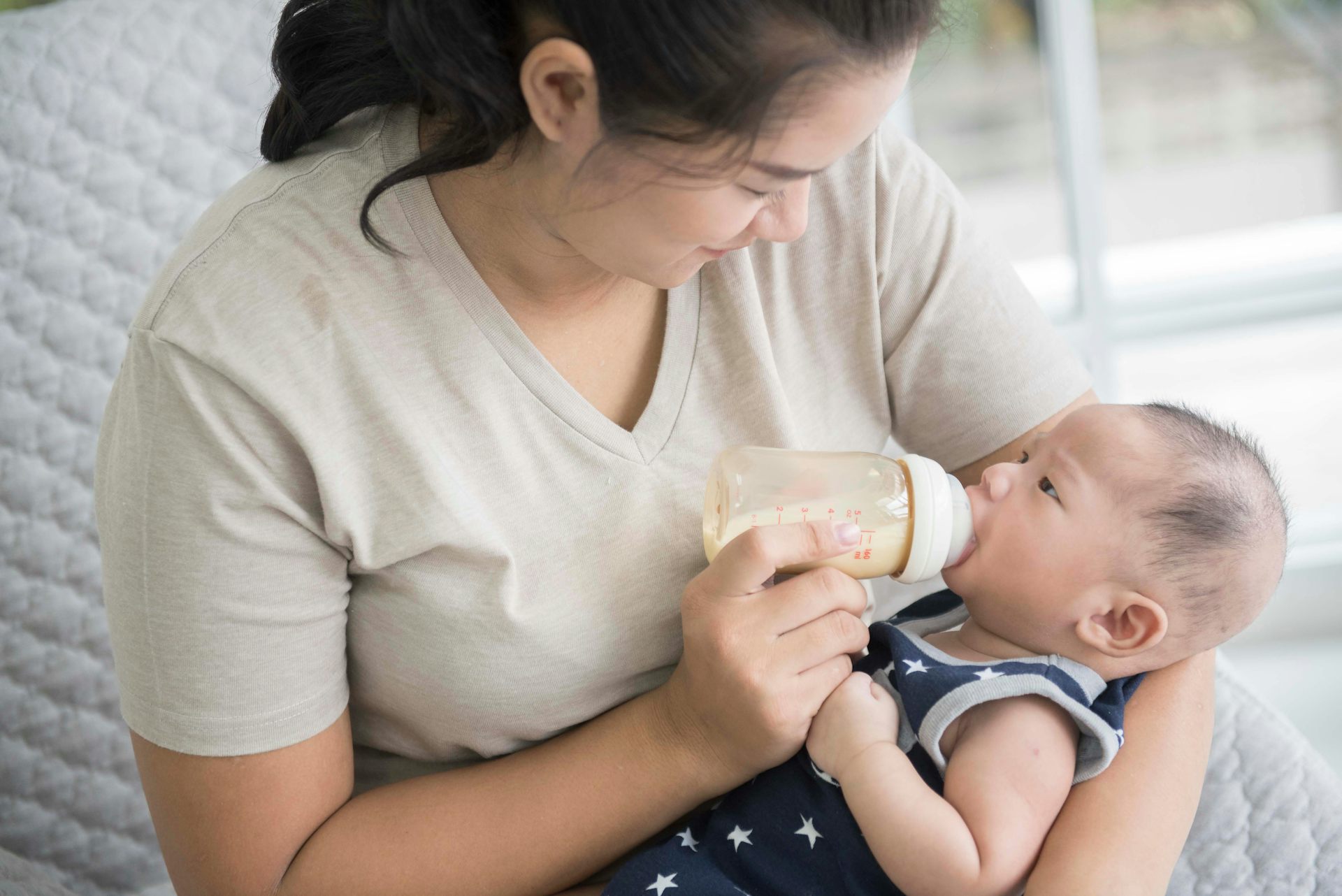 What is the reason for the increased sweating of newborns, why does the child sweat if it is not hot and there are few clothes on him? Everything is individual. Read about the causes of sweating during feeding and what to do to help the baby in an interview with pediatrician Ekaterina Borisovna Bulavina.
What is the reason for the increased sweating of newborns, why does the child sweat if it is not hot and there are few clothes on him? Everything is individual. Read about the causes of sweating during feeding and what to do to help the baby in an interview with pediatrician Ekaterina Borisovna Bulavina.
WHY THE BABY SWEET DURING FEEDING
— Ekaterina Borisovna, what does the baby's sweating during sucking mean?
- All children sweat. Distinguish between normal and excessive sweating. Moderate sweating during feeding is considered normal and is not a cause for concern. But it should not be accompanied by a bluish coloration of the face or nasolabial triangle, the appearance of cold sticky sweat flowing down the face or back. The normal act of sucking is usually not accompanied by the baby's anxiety, shortness of breath with retraction of the intercostal space, pronounced palpitations. Otherwise, you should immediately consult a doctor.
- Does age affect sweating?
- Sweat glands are activated at the age of one month. Up to five or six years, the formation of the function of thermoregulation occurs. During this period, maximum sweating is observed. The second peak of sweating is adolescence, when sex hormones turn on.
Up to five or six years, the formation of the function of thermoregulation occurs. During this period, maximum sweating is observed. The second peak of sweating is adolescence, when sex hormones turn on.
- Intensive sucking can cause sweating?
- The act of sucking a breast or a bottle is work, especially for a baby in the first months of life. Therefore, even slight discomfort can increase sweating during feeding. Also, the child can spend more energy due to some features of the anatomy of the mother's breast. And even a child's posture is of great importance - if the child is uncomfortable and has to strain all the muscles, he will sweat.
— Almost every mother notes that a newborn's head sweats when feeding. What parts of the body are still sweating?
— During suckling, the baby does a colossal work, which involves the muscles of the head, neck, upper shoulder girdle. Therefore, it is these areas that are normally sweating during feeding. With imperfect heat transfer, the palms and feet of the child can sweat a lot, since a large number of sweat glands are concentrated there.
With imperfect heat transfer, the palms and feet of the child can sweat a lot, since a large number of sweat glands are concentrated there.
— Frequent sweating of the head and the development of childhood rickets — interrelated processes?
- Sweating combined with nape baldness often worries parents. This is the most famous symptom. But it is worth remembering that the hair on the back of the head is wiped normally in healthy children, especially until they have learned to sit, and they turn their heads very actively.
Read also
- Common sleep problems in infancy, what ways to try to calm the baby and fall asleep after feeding.
Early signs of rickets
Non-specific:
- restless behavior, startling from sudden sounds, flashes of light;
- sleep disturbance, shallow sleep with awakenings;
- sweat clammy with sour smell;
- itchy skin;
- rubbing the back of the head against the pillow and baldness.
The most informative:
- compliance of the margins of the large fontanel;
- muscle weakness;
- protruding tummy.
At risk of developing rickets are large formula-fed babies who rarely walk outside. But for early detection of rickets, it is enough to visit a pediatrician in a timely manner: an experienced doctor will easily notice the signs of the disease.
— How can parents distinguish external causes of sweating from health problems?
— When excessive sweating occurs, the first step is to review the surrounding microclimate. If the room temperature exceeds +25 ° C, and the air humidity is more than 60%, the child simply overheats. The next step is to evaluate the clothing: too tight, made of synthetic fabrics and needs to be replaced.
Warning symptoms requiring immediate medical attention:
- lethargy, weakness, fatigue or, conversely, excessive excitement;
- restless interrupted sleep;
- poor weight gain, poor appetite;
- lag in psychomotor development;
- muscle weakness or, conversely, pronounced muscle tone;
- cyanosis (cyanosis) of the nasolabial triangle during sucking, cyanosis of the extremities;
- fever;
- signs of a viral infection, pustular skin lesions;
- pathological impurities in the stool;
- prolonged cough;
- enlarged lymph nodes of any localization;
- softening of the edges of the large fontanel, change in the shape of the skull;
- Distended protruding abdomen, tendency to constipation.
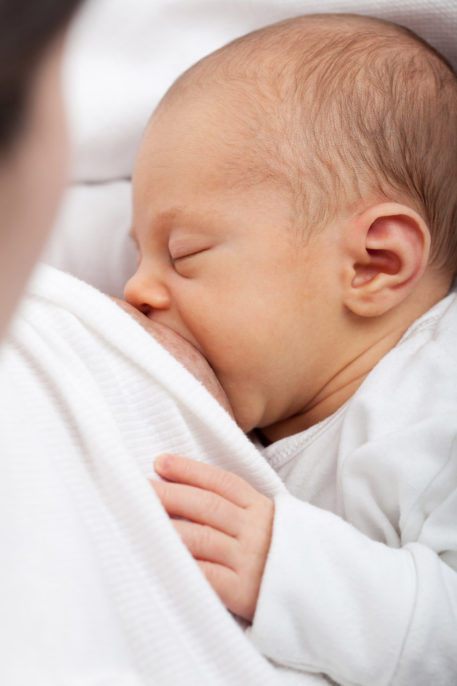
Characteristic signs that also require immediate attention to the pediatrician:
- specific smell of sweat;
- clammy, cold sweat;
- profuse sweat in large drops, acting on the forehead, back;
- profuse (suddenly released in large quantities) sweat, requiring dressing.
In addition to external factors, the general condition, activity, sleep, mood, level of development of the child are assessed. Moderate sweating in general well-being is rarely a sign of a serious illness - this is a temporary inconvenience that will pass with the maturation of the nervous system. Physiological sweating most often disappears with the normalization of the temperature regime, the correct selection of clothing.
HOW TO REDUCE CHILDREN'S SWEET DURING FEEDING
— Ekaterina Borisovna, what should parents do if the baby sweats a lot during feeding?
— To make the feeding process as convenient as possible, it is necessary to create optimal conditions for the child:
- feed in a cool, well-ventilated area;
- dress the child appropriately for the ambient temperature in natural, breathable clothing that is loose and free of coarse seams;
- a sleeping child should wear one more layer of clothing than an adult who is feeling comfortable at that moment, and one less layer for an actively moving child;
- do not wear hats, caps during feeding, as the baby's head often sweats, and an additional layer of clothing will increase overheating;
- feed in a reclining position, supporting the upper shoulder girdle with a hand or placing a special pillow; it is impossible to support only the head, since only the neck is bent and it is inconvenient for the baby to suck;
- use special silicone pads on the nipples, knead and strain the breast before feeding in case of anatomical problems in the mother that make sucking difficult;
- bathe the baby more often, use contrast baths or douches after bathing in cool water - hardening always has a beneficial effect on the autonomic nervous system and immunity;
- more often leave the baby without clothes for air baths.

In addition, bottle feeding should be carefully considered:
- use an anti-reflux bottle with a medium hard teat;
- The opening on the nipple must be appropriate for the age of the baby;
- Too soft or too tight nipples are not suitable for normal feeding.
Young children tend to sweat, which is associated with the imperfection of the thermoregulation system. The baby is very dependent on the ambient temperature and easily overheats. Even seemingly insignificant muscle work during sucking is a serious burden for the baby and is accompanied by the release of sweat, especially in conditions of high temperature and humidity. If sweating is excessive and the child suffers from it, this is an occasion to visit a pediatrician to determine the causes.
* Breast milk is the best food for babies. WHO recommends exclusive breastfeeding for the first 6 months of a child's life and continued breastfeeding after complementary foods are introduced until the age of 2 years.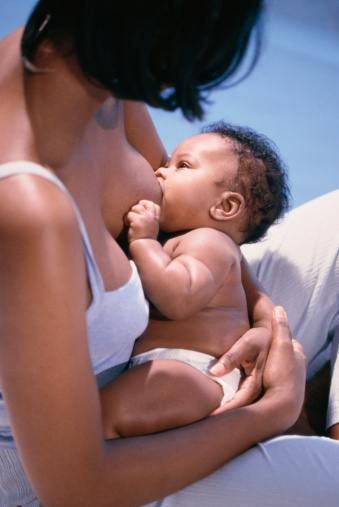 Before introducing new products into the baby's diet, you should consult with a specialist. The material is for informational purposes and cannot replace the advice of a healthcare professional. For feeding children from birth. The product is certified.
Before introducing new products into the baby's diet, you should consult with a specialist. The material is for informational purposes and cannot replace the advice of a healthcare professional. For feeding children from birth. The product is certified.
#advice for mom #breastfeeding
See also
Why does a newborn spit up so often
#Tips for Mom #regurgitation 0-6
Kizino Polina Alexandrovna
pediatrician, perinatal psychologist
Infant feeding patterns - what to choose
#Tips for Mom #breastfeeding
Kizino Polina Alexandrovna
pediatrician, perinatal psychologist
Why a child hiccups and how to help him
#Tips for Mom #regurgitation 7-12 #regurgitation 12 plus
Kizino Polina Alexandrovna
pediatrician, perinatal psychologist
See all
View all
Why does a newborn spit up so often
# Tips for mom # regurgitation 0-6
Kizino Polina Alexandrovna
pediatrician, perinatal psychologist
Infant feeding patterns - what to choose
# Tips for mom # breast-feeding #grudnoe-vskarmlivanie
Kizino Polina Alexandrovna
pediatrician, perinatal psychologist
Why a child hiccups and how to help him
# Tips for mom # regurgitation 7-12 # regurgitation 12 plus
Kizino Polina Alexandrovna
pediatrician, perinatal psychologist
See all
View all
View all
View all
is there any reason for concern?
Sweat is one of the adaptive reactions of the body to normalize body temperature, namely, to combat overheating.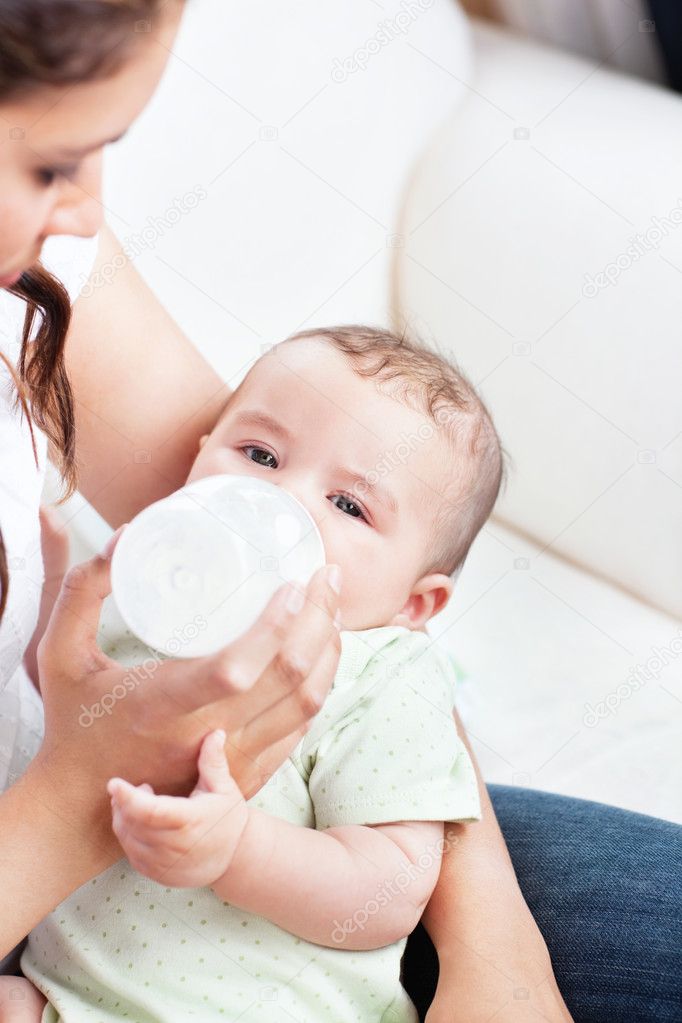 Many parents are frightened when, after a daytime or nighttime sleep, the baby wakes up with a wet crown
Many parents are frightened when, after a daytime or nighttime sleep, the baby wakes up with a wet crown
In most cases there is nothing to worry about. To understand the reasons, critically assess how hot it is in the room, whether the child is overly wrapped up, etc. As a rule, the reason lies most often in overheating. The body and hairs of a sweaty baby must be blotted with a soft towel and dressed in dry clothes.
Some medical conditions, such as rickets, can also cause excessive sweating. Violation of phosphorus-calcium metabolism affects the state and work of the central and autonomic nervous system. Hence, the initial stages of rickets are characterized by excessive fearfulness of the baby, shuddering and severe sweating. In order to understand the causes of sweating and not to miss the disease, it is advisable to consult a pediatrician.
To begin with, one should take into account the fact that the release of sweat is a natural physiological process. Sweat glands begin to function in children from 3-4 weeks.
Sweat glands begin to function in children from 3-4 weeks.
The vegetative nervous system is responsible for the release of sweat in our body. It also affects body temperature, breathing, heartbeat and much more. In infants, it is not very well developed, and this can lead to the fact that the baby sweats heavily and often, and the sweat becomes thicker or, conversely, too liquid. And when a problem arises in some part of the nervous system, the baby sweats "in places" or, conversely, in some places it does not sweat at all. If you see that the child's sweating is too profuse, especially if the child sweats in his sleep, you should visit a pediatrician.
If the baby has an unusual, strong smell of sweat, this indicates that the problem lies outside the nervous system. Among other things, some hereditary diseases manifest themselves in this way - for example, with phenylketonuria, the sweat of a child smells like mice. But the sour smell of sweat happens in babies due to rickets.
If excessive sweating in a child is accompanied by moodiness, changes in behavior, sobbing for no reason, restless sleep, this may signal a serious illness.
Sweating can also be caused by vitamin D deficiency, heart failure, colds, severe overactive thyroid, or medications.
If everything is normal with the child, then he sweats:
- when he is hot, has a temperature or is worried.
- Moisture appears all over the body: in the armpits, on the chest, back, head.
- Sweat smells natural, not sharp.
If rickets is suspected:
- the child sweats frequently and profusely, especially when exerting himself, for example, during meals or after going to the toilet.
- baby smells sour; sweat irritates the skin and makes the baby itchy.
- the top of the head of the child gets wet, and the baby dries it on the pillow.
- the child often worries, shudders, cries, does not sleep well.
